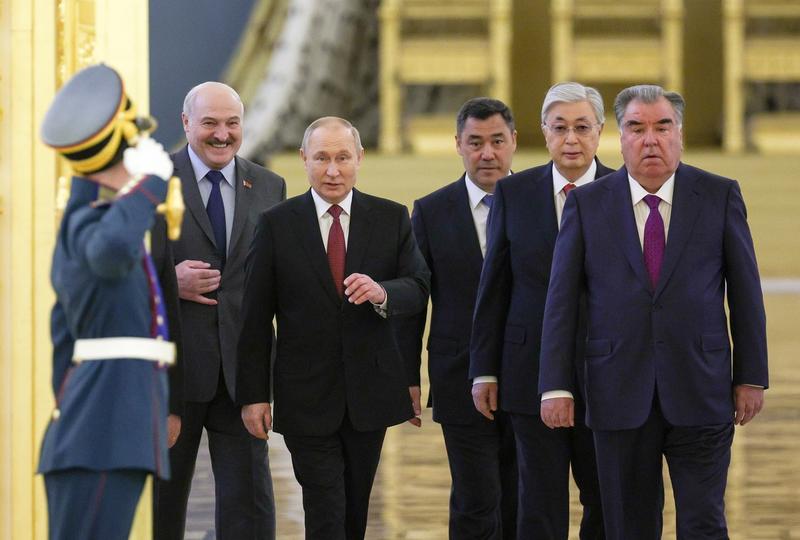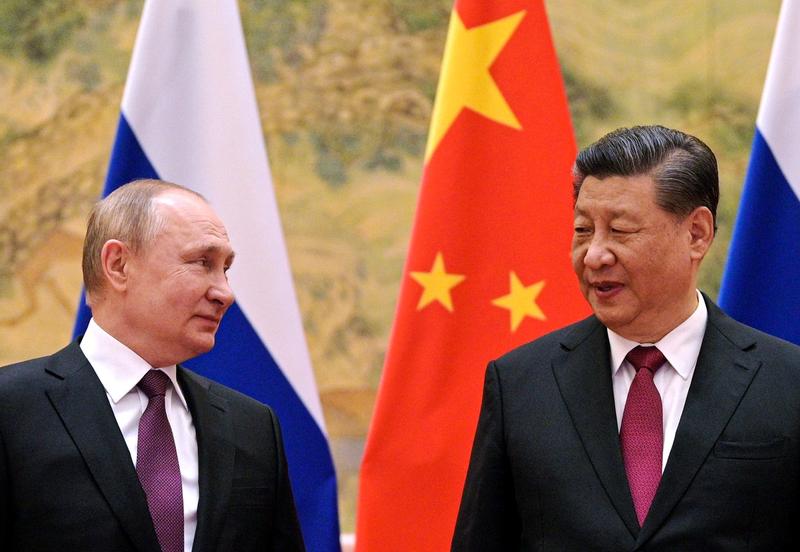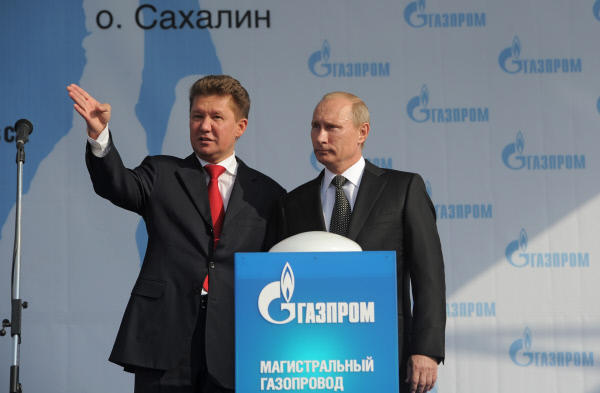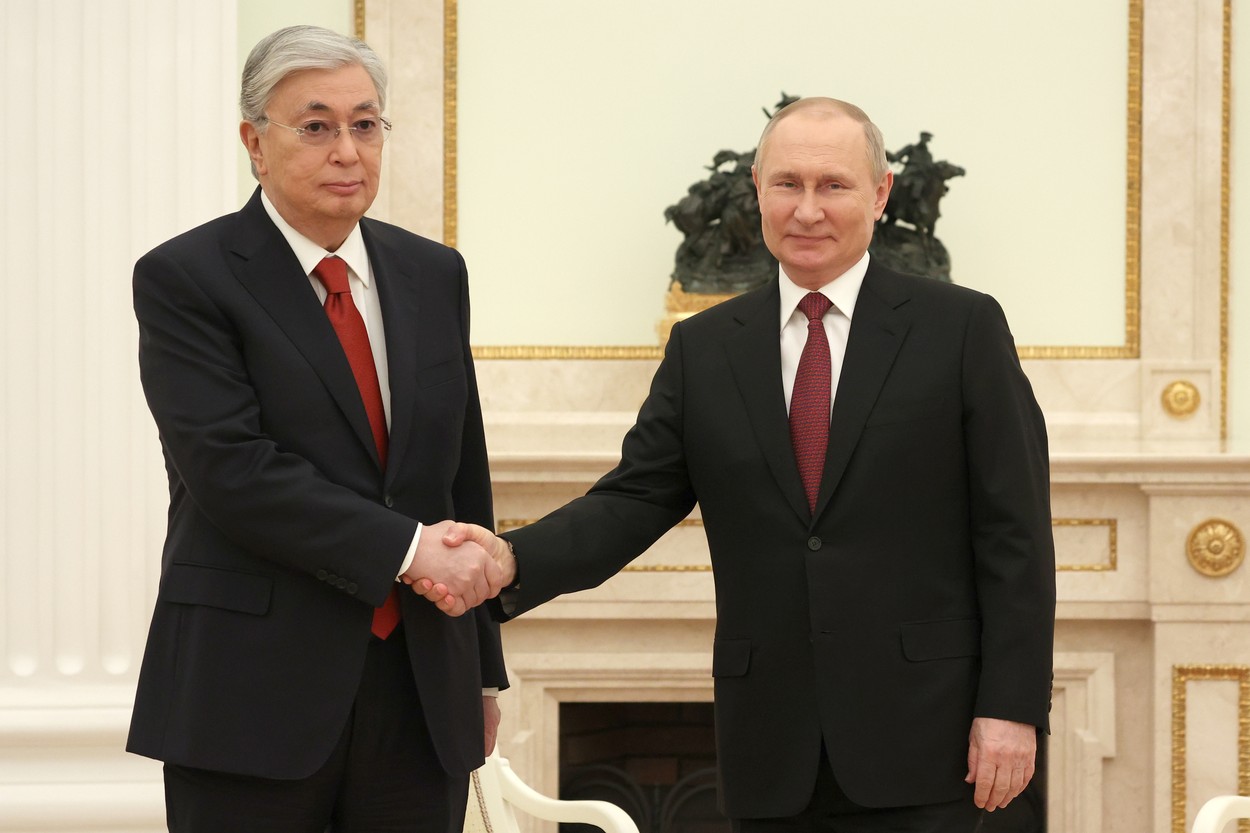Even before his invasion of Ukraine in late February, Putin appeared to have reached the peak of his influence over the former Soviet Union (USSR). Al Jazeera.
Vladimir PutinPhoto: Gavriil Grigorov / AFP / Profimedia Images
In January, a popular uprising in Kazakhstan forced its President Kassym-Jomart Togayev to “call in” hundreds of troops from the Russian-led Collective Security Treaty Organization (CSTO) to “mitigate the terrorist threat.”
Meanwhile, the Taliban’s takeover of Afghanistan in August 2021 helped Russia increase its influence in the rest of ex-Soviet Central Asia.
The previous year, Russia brokered a peace deal between CSTO members Armenia and Azerbaijan and sent thousands of peacekeepers to the region after the conflict over Nagorno-Karabakh degenerated into a week-long war, with Azeri forces seizing large swaths of territory.
With other existing Russian bases in Armenia and two breakaway Georgian regions, the development marks Russia’s military foothold in three countries in the South Caucasus region bordering Iran and Turkey.
Vladimir Putin speaks at the CSTO Leaders’ Summit Photo: Sergey Babilev / TASS / Profimedia Images
The military presence has helped Moscow regain some of its Soviet-era influence in the Middle East, where Russian bombers have been crucial in supporting Syrian President Bashar al-Assad’s forces in the country’s long-running war.
The Kremlin used the Syrian war to develop and boost sales of its new weapons.
Then came the invasion of Ukraine.
A paper tiger?
Analysts blame Russia’s failures in Ukraine, international boycotts and Paralyzing barriersA political Pandora’s box has been opened – as evidenced by the resumption of fighting in Nagorno-Karabakh this week.
“Weakened in Ukraine and not interested in siding with Baku, Moscow is reluctant to intervene directly beyond a peacekeeping mission in Nagorno-Karabakh,” Kevork Oskanian, a lecturer at the University of Exeter, told Al Jazeera.
During a sit-down with Putin in June, Tokayev angered many in the Kremlin by announcing that his country would not recognize two pro-Russian separatist states in Ukraine.
Meanwhile, analysts reported on recent transactions by Moscow Buying drones made in Iran And North Korea’s weapons show how depleted its military-industrial complex is and how dependent it is on Western microchips.
Vladimir Putin and Xi Jinping Photo: Alexey Truzhinin/AP – Associated Press/Profimedia
Western pressure makes Moscow lean towards Beijing
“Before the war, Russia needed China more than China needed Russia. After the war, this dependence strengthened,” Sinologist and Carnegie Politics expert Temur Umarov told Al Jazeera, a Moscow-based think tank.
This bias mainly involves a disappointingly difficult shift in energy exports from Europe to China. As Western restrictions on technology imports come into effect, Russia is increasingly dependent on Chinese know-how.
“Russia is completely isolated from the global technology market, and there is only China,” Umarov said.
But the bigger problem is that other ex-Soviet countries are also leaning towards China — especially in Central Asia, Russia’s “soft underbelly,” as Putin’s predecessor Boris Yeltsin put it.
“We will see the creation of a new bloc to balance America, but not in the form of ‘Russia-centric’ as the Kremlin tries to present itself, but ‘Beijing and its allies,'” analyst Ikar Tishkevich wrote. On Facebook, in Kyiv
Russia is becoming increasingly vulnerable in relation to its allies
Iran, one of Russia’s allies, is already preparing to replace Vladimir Putin’s country in exporting oil to Europe if sanctions against Tehran are lifted, according to reports. Markets Insider.
The barrels that stopped coming out of Iran following the reimposition of US sanctions have not affected global prices as much as there is no shortage of supply. West against Russia’s energy sector.
“A deal would put a significant amount of Iranian crude back on the market, which would be a drag on prices,” said Henry Rome, an energy analyst.
Gazprom, a state-owned company under Putin’s orders Photo: Gazprom
Iran has already increased production in anticipation of the lifting of sanctions, and its capacity is expected to increase by 6% to 4 million barrels per day by March next year, according to an announcement by Mohsen Khojasteh, the CEO of Iran’s own state company. Meher, on August 22.
Tehran’s entry into Moscow’s traditional markets, which Russia has sought to reposition itself due to Western sanctions, leaves Russian President Vladimir Putin in an impossible position, with no power to pressure allies or partners.
Russia has already asked Tehran to supply military drones for its war in Ukraine after Western sanctions left it without the electronic components needed to make them.
In its relations with China, Russia is also dependent on Beijing’s wishes, while Kazakhstan has declared itself a major energy producer. Respect Western taboos It is already negotiating against Moscow and to increase its natural gas exports to the EU.
Kazakhstan has offered to export oil and natural gas directly to Hungary, one of the EU’s most dependent countries for energy imports from Russia.
Putin and Tokayev during a meeting in Moscow after the suppression of protests in Kazakhstan
What fate could be in store for Russia?
Some observers believed that Russia’s fighting in Ukraine exacerbated the eclipse of Russian influence in the former Soviet republics, which had already begun to wane.
“The process started earlier and is more visible. They feel that Russia is not the undisputed leader in their regions, and they shape their policies according to reality,” said Sergei Bysyukin, an exiled opposition activist from the western Russian city of Ryazan.
Others have compared the war in Ukraine to the 1979-89 Soviet-Afghan conflict and the role it played in the demise of the former Soviet Union.
“All this shows the centrifugal forces at work in Afghanistan after the defeat of the Soviet Union,” exiled opposition leader Nikara Kitoidova from Uzbekistan told Al Jazeera.
Russia’s weakness in Ukraine triggered actions similar to those that led to the collapse of the Soviet Union, he said.
“I think the same fate awaits Russia,” Kidoidova said.
proof’s: Al Jazeera, Markets InsiderHotNews.ro

“Evil gamer. Amateur music trailblazer. Alcohol geek. Problem solver. Coffee advocate. Troublemaker. Infuriatingly humble zombieaholic.”




